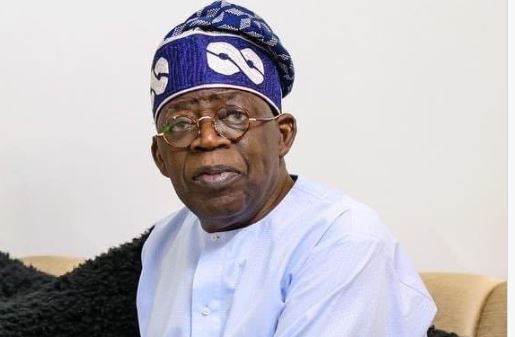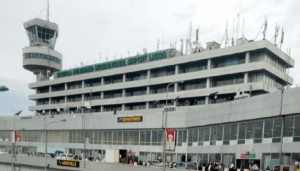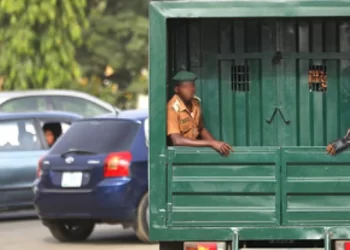On 11 April, lawyers representing the All Progressives Congress (APC) at the Presidential Election Petitions Court, Abuja, insisted that Bola Tinubu, the party’s candidate at the February 25 presidential election, was never indicted for any drug-related offenses. Due to a 1993 Illinois court judgment, Tinubu forfeited $460,000 in two of his bank accounts.
The forfeiture was the outcome of an investigation that linked over $2 million in several of Tinubu’s bank accounts to proceeds from the heroin trafficking of Adegboyega Mueez Akande and Abiodun Agbele, Chicago drug kingpins.
A certified true copy of the US court judgment resurfaced ahead of the 2023 general elections putting the president-elect’s past trouble with US law enforcement agencies in the spotlight.
Below is a timeline of the 30-year-old court case in local and international news.
January 1992
January 1992, Tinubu became the subject of a US federal investigation into heroin trafficking and money laundering in Illinois, Chicago.
July 26 1993
Signed copies of the US court document show bank accounts in Tinubu’s name were linked with drug trafficking and money laundering.
February 10, 2003
The Vanguard, a Nigerian daily, published a letter from the US Consulate in Lagos to Tafa Balogun, Inspector-General of Police, stating there was nothing in the records of the Federal Bureau of Investigation (FBI) indicating Tinubu, who was running for reelection as Lagos state governor, had at any time in the past been arrested or wanted for crime in the US.
According to the letter signed by Michael Bonner, the legal attache in the Consulate, following a check of the records of the Federal Bureau of Investigation’s (FBI) National Crime Information Centre (NCIC) said, “there were no criminal arrest records, wants, or warrants for Bola Ahmed Tinubu”.
2015/2017
The Daily Beast, a New York-based news website, published a story on April 27, 2015 (and updated April 14, 2017) that said Tinubu “had to forfeit nearly half a million dollars to the U.S. Treasury Department after being named as an accomplice in a white heroin-trafficking and money-laundering ring that stretched from West Africa to the U.S. Midwest.”
According to Michael Weiss, who wrote the story, “Although his case has been bandied about in the Nigerian press for years, Tinubu’s involvement in a federal drug and racketeering investigation waged jointly by the DEA, FBI, and IRS has gone unreported elsewhere”.
July 13, 2022
Three months before the 2023 elections campaign kicked off, David Hundeyin, an independent journalist, revisited Tinubu’s narcotics-linked forfeiture with a story, Bola Ahmed Tinubu: From Drug Lord to Presidential Candidate.
Published in his newsletter West Africa Weekly, Hundeyin’s investigation was the first detailed report to delve into the District Court of the Northern District of Illinois court documents from the 1993 heroin trafficking. The court document became widely accessible after Hundeyin uploaded it to Scribd.
A week later, search interest in the court documents more than quadrupled after PlainSite, a website dedicated to legal data transparency, posted it.
November 13, 2022
Hundeyin shared a link to a video version of his investigation on West Africa Weekly’s YouTube account and the video has gained over 360,000 views.
November 16, 2022
A certified true copy of the United State District Court for the Northern District of Illinois case against Tinubu for narcotics trafficking and money laundering is released online.
According to the document, the monies held in those forfeited accounts were proceeds from white heroin drug operations operated by Akande and his partners.
Akande had a strong and well-connected narcotics business, whose proceeds were substantial and kept in the forfeited bank accounts, the document shows.
April 10, 2023
UberFacts, a Twitter account that shares facts, published a certified copy of the drug trafficking and money laundering case involving Tinubu.
“In 1993, Bola Ahmed Tinubu surrendered $460,000 to the US government after a Chicago court found the income came from heroin trafficking,” UberFacts’ tweet said.
The platform with 13.5 million followers gained 12.5 million views, 35,600 retweets, and 7,324 quotes in 24 hours because of this tweet. It is the most engaged Africa-related tweet of UberFacts which rarely posts facts about the continent.
April 10, 2023
Daily Loud, a Twitter account with 1.6 million followers, made the court documents a trending topic , tweeting that “In 1993, Bola Ahmed Tinubu surrendered $460,000 to the U.S. government after a Chicago court found the income came from packing and shipping heroin.”
The tweet has since gained over 39,700 likes, 6.9 million views, 25,599 retweets and 5,943 quotes.
Africa Archives, in a Twitter thread said, Nigerian President-Elect Bola Ahmed Tinubu was named as the owner of several bank accounts that were used to launder money for a heroin distribution network in Chicago, IL in the early 1990s. The members of the heroin ring were criminally charged in a separate case”. The thread has seen 1.4 million views in less than 24 hours. This reach has almost doubled that of the largest daily newspaper in the United States, Wall Street Journal that attained 698,000 reach daily in the first 6 months of 2022.
Within the space of nine months, July 2022 to August 2023, the drug case involving Tinubu has generated over 10 million engagements in likes, retweets, quotes, views and shares across various social media platforms.
The UberFacts tweet has been translated to Arabic, Spanish, Hausa, Igbo, Egyptian hieroglyphics, as well as braille, on Twitter. The braille version had over 7,000 views, and the hieroglyphics garnered 139,000 views as of Tuesday.
Report originally published by Business Day (different headline)









Discussion about this post